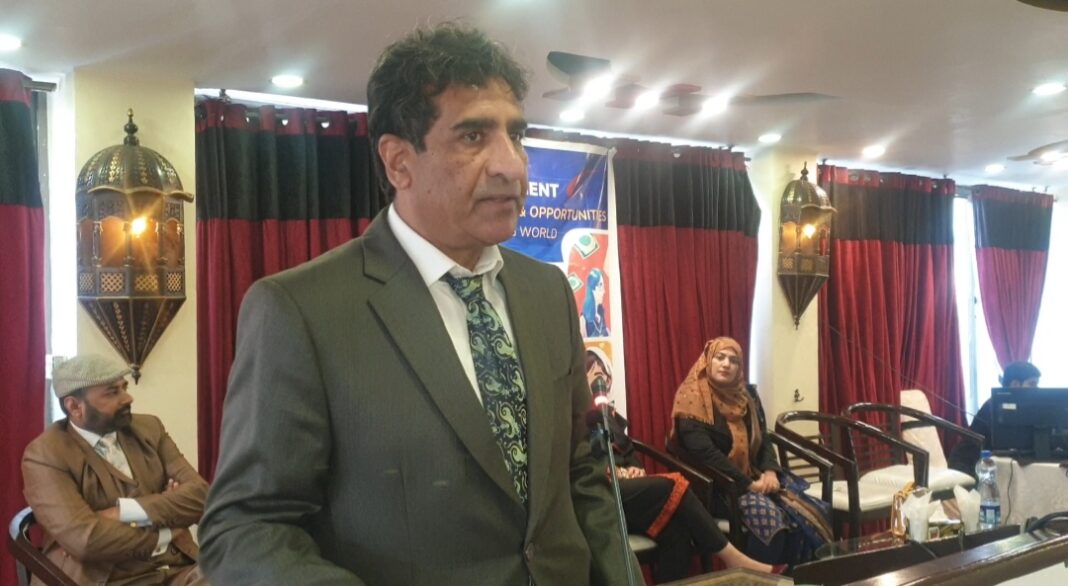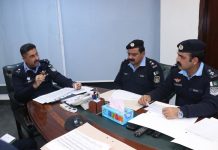By Asim Hussain
ISLAMABAD: Principal Information Officer (PIO) Dr. Tariq Mehmood Khan on Thursday highlighted the evolving landscape of opportunities for women, driven by digitalization.
In a seminar titled “Women Empowerment: Challenges & Opportunities in a Changing World,” organized in connection with International Women’s Day, he emphasized the transformative impact of digitalization, stating that it has led to a significant increase in opportunities for women, particularly in economic spheres.
He noted a positive trend towards women’s increased participation in various aspects of life, including politics and the economy, which is gradually crossing traditional barriers.
Acknowledging the prevailing social challenges faced by women, Dr. Tariq underscored the importance of addressing issues relating to gender equality and ensuring the provision of basic human rights to all individuals, regardless of gender. Highlighting the global nature of the women empowerment movement, he mentioned the momentum gained by feminist movements in countries such as the United States and European nations. He emphasized the need for concerted efforts at both national and international levels to empower women and promote gender equality.
Dr. Tariq urged women to seize opportunities in social, political, and economic domains to showcase their capabilities and contribute effectively to society. He encouraged women to embrace the digital world to enhance their livelihoods and achieve economic empowerment. Meanwhile, Farzana Bari, a renowned Gender Expert and Human Rights Activist, addressed the seminar shedding light on various critical issues faced by women in contemporary society.
Highlighting the pervasive challenges confronting women, including domestic violence, early marriage, and nutritional deficiencies, she emphasized the systematic discrimination against women, characterizing their treatment as that of second-class citizens must come to an end. Bari underscored the urgent need to address the deeply ingrained societal norms that perpetuate gender inequality, particularly in the division of labor. She proposed a fundamental overhaul of academic curricula to challenge such mindsets and foster gender equality from an early age. Advocating for governmental intervention, Bari urged authorities to take proactive measures to empower women through robust legislation and its rigorous enforcement across the nation. She called for an aggressive nationwide campaign to educate the masses about gender rights and ensure their implementation at every level of society. Despite the myriad challenges faced by women, Bari highlighted their resilience and remarkable achievements across various spheres of life. She emphasized the importance of recognizing and celebrating women’s contributions to society, urging for concerted efforts to create an environment conducive to their empowerment and success. Bari emphasized on the need for comprehensive action to address women’s rights and achieve true gender equality in society. She called for collective efforts towards building a more inclusive and equitable future for all. Afshan Tehseen Bajwa, Former Chairperson, National Commission on the Rights of the Child (NCRC), Dr. Afshan Malik, Advisor to President, Federation of Pakistan Chamber of Commerce & Industry, Mardenda, USA-based Women Rights Activist, Dr. Asad Munir, Professor, Allama Iqbal Open University, Dr. Sadia Pasha, Professor, Allama Iqbal Open University, and Dr. Zahida Ibrahim, Medical doctor (Gynecologist) also shared their views at the seminar. The seminar was organized by the ‘Alliance For Good Governance Foundation’ and moderated by a seasoned journalist Shabir Hussain.




